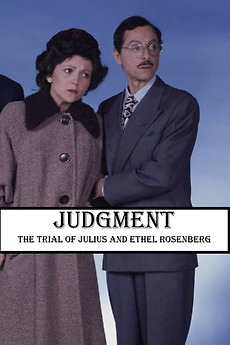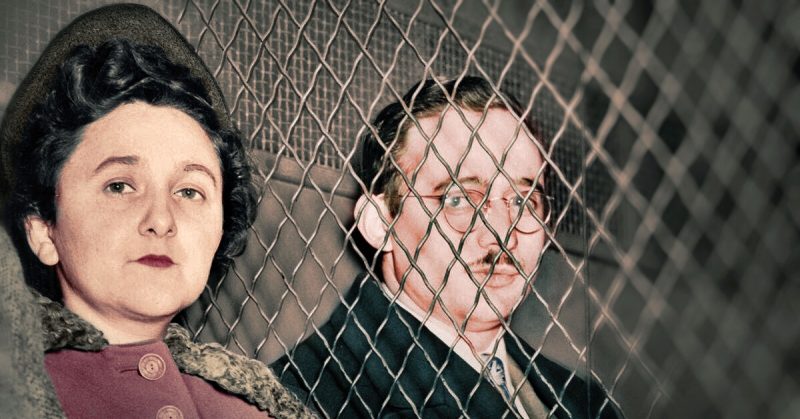In the annals of American jurisprudence, few cases have generated the enduring controversy, political intrigue, and constitutional debate as the 1951 espionage trial of Julius and Ethel Rosenberg. Convicted of conspiring to pass atomic secrets to the Soviet Union, the Rosenbergs became the first—and only—American civilians executed for espionage during peacetime in U.S. history.
Decades later, the Rosenberg trial continues to spark debate over due process, prosecutorial ethics, national security, and the death penalty, particularly in the context of the Cold War-era justice system.
A Case Born in the Shadow of the Bomb
Following the end of World War II, the United States stood as the sole nuclear power. But in 1949, the Soviet Union detonated its own atomic bomb—years ahead of American intelligence expectations. The shock triggered a wide-reaching counterintelligence campaign, and by 1950, authorities had arrested German-born physicist Klaus Fuchs, who confessed to giving classified information to the Soviets. His confession led to Harry Gold, a courier, and ultimately to David Greenglass, a former U.S. Army machinist who worked on the Manhattan Project.
Greenglass implicated his brother-in-law Julius Rosenberg, an electrical engineer and alleged Communist Party member. Later, under pressure from prosecutors, Greenglass also named his sister, Ethel Rosenberg, as part of the spy network. Their arrests marked the beginning of one of the most sensational criminal prosecutions of the 20th century.
The Charges and the Law

Julius and Ethel Rosenberg were charged under Section 2 of the Espionage Act of 1917 (40 Stat. 217; 18 U.S.C. § 794), a law passed during World War I that criminalizes the transmission of national defense information to a foreign power with intent or reason to believe it will harm the United States.
Notably, they were not charged with treason, which would have required either confession in open court or the testimony of two witnesses to the same overt act—an evidentiary burden the government could not meet. Instead, prosecutors pursued the more flexible espionage statute, which carried the death penalty at the discretion of the trial judge.
The Trial: A Legal and Political Firestorm
The trial commenced on March 6, 1951, in the U.S. District Court for the Southern District of New York, presided over by Judge Irving Kaufman. Lead prosecutor Irving Saypol, later dubbed “the nation’s number one legal hunter of Communists,” presented a dramatic case relying heavily on testimony from David and Ruth Greenglass. The Greenglasses claimed Julius recruited David into a Soviet spy ring, and that Ethel typed up notes to be delivered to the Soviets.
The defense, led by Emanuel Hirsch Bloch, argued the case was built on coerced and perjured testimony, pointing to the lack of physical evidence and the motivation of the Greenglasses to avoid their own harsh sentencing.
Despite international attention and mounting criticism, the jury returned guilty verdicts for both defendants. On April 5, 1951, Judge Kaufman sentenced the Rosenbergs to death, citing their betrayal as a factor that may have encouraged the Korean War and cost American lives.
Legal and Ethical Controversies
From the start, the Rosenberg case was entangled in legal and ethical disputes that still echo in criminal jurisprudence:
- Due Process Violations: Critics argue the trial was politically charged and that Ethel Rosenberg was prosecuted primarily to pressure Julius into a confession. In 2001, David Greenglass admitted on 60 Minutes II that he lied about his sister’s involvement to protect his own wife.
- Prosecutorial Misconduct: Historians have uncovered ex parte communications between Judge Kaufman and the prosecution team, including then-FBI Director J. Edgar Hoover—raising questions about impartiality and judicial ethics.
- Use of the Death Penalty: The imposition of capital punishment in a case based primarily on testimonial evidence and absent any documented transmission of nuclear secrets spurred intense debate among legal scholars and human rights advocates.
- International and Diplomatic Fallout: Global protests erupted in the weeks leading to the Rosenbergs’ executions. Pope Pius XII, Albert Einstein, and Jean-Paul Sartre were among prominent voices calling for clemency.
Execution and Legacy

Despite appeals to President Dwight D. Eisenhower, the Supreme Court’s denial of a stay of execution, and last-minute litigation up to Associate Justice William O. Douglas, the Rosenbergs were executed on June 19, 1953, in Sing Sing Prison, Ossining, New York.
Their deaths did not end the controversy. Over the following decades, declassified Venona Project cables and Soviet archives partially confirmed Julius’s role as a Soviet agent but failed to implicate Ethel to the same extent. Legal scholars and civil libertarians continue to examine whether her death sentence was legally and morally justified—or whether it was, as some believe, a miscarriage of justice wrapped in Cold War hysteria.
Enduring Legal Lessons
The Rosenberg case remains a case study in the collision between national security and civil liberties, especially during periods of national panic.
- Prosecutorial Discretion and Ethics: The case is often cited in legal ethics courses as an example of how the government’s charging decisions can be shaped by strategy rather than substance.
- Judicial Impartiality: Alleged improper communications between the judiciary and prosecutors highlight the need for rigid boundaries between branches during high-profile prosecutions.
- Capital Punishment: The execution of civilians for espionage, especially without incontrovertible physical evidence, continues to challenge modern standards for the death penalty.
Conclusion
More than 70 years later, the Trial of Julius and Ethel Rosenberg remains one of the most controversial intersections of law, politics, and morality in American history. It raises enduring questions about how far a government can—or should—go in the name of national security, and whether justice is truly blind during times of fear.
As debates about whistleblowers, surveillance, and foreign interference persist in the 21st century, the Rosenberg trial continues to offer a sobering reminder of how civil liberties can be compromised in the heat of ideological warfare.

